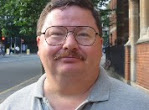Okinawa, The Last Battle of WWII -- by Robert Leckie
Author Bob Leckie closed like a veteran out of the bullpen, nailing a big victory.
The former WWII Marine turned post-war sportswriter and multi-book author kept his Okinawa going all the way through with excellent writing, continuity, and statistical use in this 1995 edition of 210 pages. He was already finished with combat when the Army, Navy, and Marines invaded Okinawa on April 1, 1945. His last fight was at Peleliu, but he had plenty of familiar faces to serve as sources from Okinawa.
The Okinawa landing force was larger than that which hit the Normandy beaches a year earlier in Europe, and this would be the last huge battle of the war. But no one knew it that day.
Japanese kamikaze planes sank 36 U.S. ships, which supported the invasion, contributing much to the devastating psychological damage there. Leckie trod lightly over that compared to other writers who've made it their lead, or near top, agenda. Leckie sympathized with the commanders and especially the sailors who found rest between attacks nearly impossible.
"Those who survived the suiciders' screaming dives went for days on end without sleep, their nerves exposed and quivering like wires stripped 0f insulation. Lying wide-eyed in their bunks, they waited to hear the dreaded telltale click and static of the ship's bullhorns being activated -- like a starter's gun sending them leaping erect and running so that they were already in motion when the shrill, strident notes of 'General Quarters,' burst in their ears."
Marines and soldiers, with their own daily life-and-death struggles often lost sleep, too, watching the kamikazes attack.
Leckie still, and already well understood the horrors faced by all on and around Okinawa, and they certainly didn't escape this veteran journalist's sights. Often U.S. forces gained control bit by bit, finally establishing peace after the Japanese surrendered.
Leckie found an instant of humor in the deadly fight. A Marine officer had kept a special flag for important ceremonial moments, but it was the Stars and Bars that was raised when Shuri Castle was taken. Original plans had called for the Army's 77th Division, Desmond Doss's division, to the significant old castle of the Ryuku Empire, but the 77th was slowed by the familiar knee-deep mud.
Thoughts turned to the expected coming invasion of Japan when the noises of almost three months of battle eventually died. But the atomic bomb was dropped on Hiroshima and Nagasaki, in effect, ending the war.
And here, Leckie also showed a different perspective, not often heard. He noted that Japan was already a beaten country, and might've surrendered, anyway. There was a major political battle going on between the Japanese government warhawks, and the new Peace Party. Leckie said the bombs, and one might've been enough, allowed Emperor Hirohito to come down on the side of the Peace Party, and accept the offered surrender terms.
However, that left an argument whether Okinawa was a necessary battle, or not. One unseen factor was Soviet leader Joseph Stalin's aggressive tones, and the bomb seemed to keep him, temporarily at bay.
"...if the Japanese had won this biggest battle of the Pacific War, the hold of the War Lords would have been so strengthened that even the influence of Hirohito could not have persuaded the Imperial Conference to accept the Allied surrender offer. Thus the war would have been prolonged..



0 Comments:
Post a Comment
<< Home